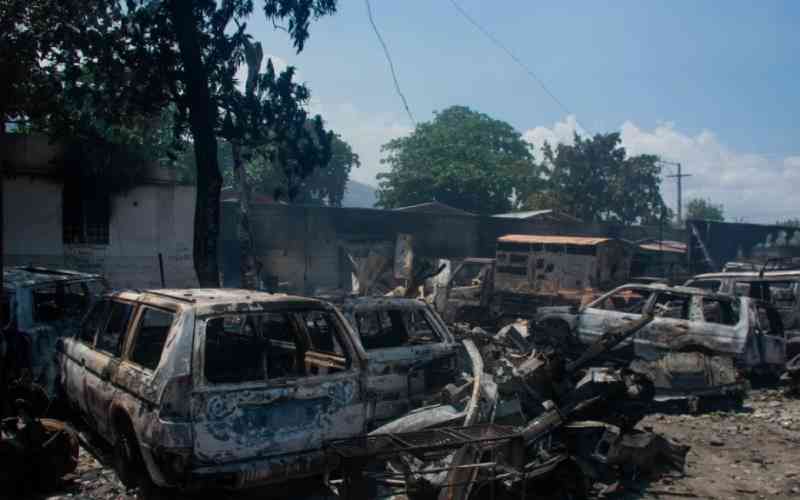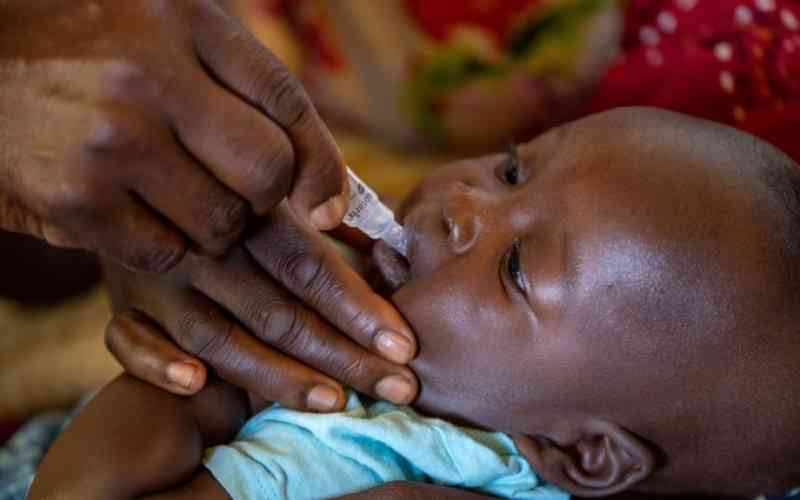In regular conversations, the term ‘policy space’ is pretty inoffensive and hardly raises an eyebrow.
But at the just-concluded 14th United Nations Conference on Trade and Development (UNCTAD), the meaning of these two words saw negotiators spend sleepless nights in a room at the Kenyatta International Convention Centre (KICC).
Indeed, over the six days that residents in Nairobi grappled with increased traffic jams, changed their daily schedules to cope, and closed their businesses after access to some streets was blocked, about 70 negotiators congregated at the Aberdare Hall behind tightly shut doors manned by tough-looking guards.
Conversation swirled around whether to add ‘policy space’ or delete it from a document that would guide UNCTAD’s work over the next four years.
Double standards
Poor countries, under the umbrella of G77, which Kenya is a part of, saw in this term as their saviour from years of getting the short end of the stick in global trade. As such, they sought to introduce the term at every available opportunity. Rich countries, on the other hand, wanted the term expunged.
Indeed, the discourse over these two words was a perfect metaphor for the tug-of-war the developing world in general has had with developed countries in the global economy.
As the world has become more interconnected through improved transport and telecommunications, trade and cultural exchanges have increased.
The result has been the increased production of goods and services. However, poor countries have not equitably benefitted from globalisation’s windfall. The solution for these countries is for their governments to play a bigger role in international investment, trade and finance.
However, developed countries, under the auspices of Bretton Woods institutions — the World Bank and the International Monetary Fund (IMF) — have pushed for increased free trade.
President Uhuru Kenyatta set the tone for the negotiations when he took on the international community over its interference in the national affairs of African countries.
He accused them of hypocrisy and double standards, saying they were now short-changing developing countries on globalisation.
“And the most interesting thing is that as Africa moves, we are seeing the rest of the world retreat. As Africa advances, we are seeing the rest of the world that has benefited from globalisation all these years now retreating to become more internal in their own things,” said Mr Kenyatta.
Scholastica Odhiambo, an economics lecturer at Maseno University, said that for Kenya, the Government has had to increase the policy space, which has included enacting protective laws to shield infant industries.
For example, in the current financial year, imported steel will be slapped with increased duty in a move that is meant to help local steel manufacturers.
Stay informed. Subscribe to our newsletter
XN Iraki, an economics lecturer at the University of Nairobi, added that “policy space is a euphemism for power in negotiations”.
“And whoever has more space gets more in trade and investment. Developing countries need more policy space,” he said.
“Trade is not that international, just like politics. That is the mistake we make; we fail to protect local interests as others protect theirs. Who does not want to make money ?”
However, critics have argued that shielding local firms from competition has only made these firms uncompetitive globally. The Government has countered this argument, saying the move has gone a long way towards saving jobs.
“The concept of policy space is a crucial one for developing countries. Developing countries must have adequate policy space to establish and implement policies for inclusive and sustainable development, taking account of their histories and their changing roles in the global economy and bearing in mind the ambitious goals of the SDGs [Sustainable Development Goals],” the document that delegates were debating reads in part. This portion was eventually deleted from the final agreement.
The term ‘policy space’ did not become a sticking point for the first time in Nairobi. It first appeared around 2002 in UNCTAD documents, and acquired official status in the São Paulo Consensus of 2004.
Global market
This consensus defined it as “the scope for domestic policies, especially in the areas of trade, investment and industrial development” which might be “framed by international disciplines, commitments and global market considerations”.
In Kenya, for example, as much as the country has done all it can to attract foreign direct investment (FDIs), it has also battled against illicit financial flows (IFFs). Several multinational corporations send their profits back home or to tax havens, denying the country billions of shillings in income.
According to the Report of the High Level Panel on Illicit Financial Flows from Africa done by the African Union (AU), Kenya lost an estimated $1.51 billion (Sh153 billion) between 2002 and 2011 to forms of IFF like trade misinvoicing, tax evasion, tax avoidance and profit shifting.
This has seen the Government slap Kenyans with heavy taxes to fill its coffers and resort to high levels of borrowing.
IFFs also include money lost through money laundering, sale of drugs and terrorist activities.
Across the continent, it is estimated that Africa loses about $50 billion (Sh5.1 trillion) annually to IFFs, denying it much-needed cash to finance the expansive SDGs. These goals seek to, among other things, eliminate all forms of poverty and inequality between and within countries.
Undue advantage
African countries believe that they can stem most of this cash hemorrhage by giving governments more space to legislate certain market activities.
Kenya, for example, requires that all FDIs that come into the country be listed, said Odhiambo.
The country went a notch higher when, in the recently operationalised Companies Act, it pushed for the ceding of 30 per cent of foreign firms’ stake to Kenyan citizens by birth, igniting hue and cry from foreign investors.
Odhiambo said the concept of policy space has, however, been abused in many cases, with some countries resorting to forced nationalisation.
In South Africa, for example, there is the Black Empowerment Programme that seeks to integrate blacks into the South African economy after years of disenfranchisement brought on by apartheid.
In Tanzania, all land belongs to the government, and anyone who wants to do business in the country can only lease acreage.
“So even if you have invested Sh20 billion in that land and the government discovers minerals on it, you will only be compensated the value of the land and not the investment,” said Odhiambo, adding that this has made some investors jittery about their scale of investment in Tanzania.
But policy space can also mean countries striking deals with other countries, which gives certain investors undue advantage over locals.
Kenya, for example, has signed a number bilateral investment agreements that tend to give foreign investors a 10-year tax holiday. This tax holiday, according to Odhiambo, is supposed to help firms to recoup their investments.
Unfortunately, once the 10 years are over, some of these firms shut down and exit the market, or register under a new name denying the Government corporate tax revenue.
UNCTAD Secretary General Mukhisa Kituyi regretted that the country had signed pacts with foreign investors in the 1980s and early 1990s that were essentially detrimental to the country.
He termed the past deals as “nonsense” that must urgently come to an end if African countries want to reverse the tax shortages that are responsible for soaring poverty levels.
“Governments are mature enough now to see the nonsense that we did in the past,” said Dr Kituyi, referring to the trade pacts signed when Kenya and other African countries did not have sufficient capacity to understand their impact.
Most of the agreements that give investors wide tax breaks were entered into in the 1980s and early 90s, he said.
In a specific case, a hotel chain struck a deal with the Government to import hotel equipment tax free.
“It does not make any sense,” he said, without revealing the name of the hotel. He said that for globalisation to truly work, it must work for all.
Relevant rules
At the end of the talks, delegates signed off on the Nairobi Consensus, a four-year framework that will guide UNCTAD.
As regards ‘policy space’, delegates agreed that any national government decisions on international trade or investment had to be done in the context of relevant international rules and commitments.
“These outcomes have also recognised the importance of international co-operation, finance, technology, and capacity building to support national efforts in line with national priorities and respecting each country’s policy space, while remaining consistent with relevant international rules and its commitments,” reads part of the consensus.
Sceptics interpret these “rules” and “commitments” to mean those set by the World Trade Organisation (WTO) and IMF, two bodies where the United States has more say.
The final document was also shrunk into 44 pages from 71. ‘Policy space’, which had appeared in the initial document 13 times, only featured once in the final text.
Still, the president of UNCTAD 14 and Kenya’s Foreign Affairs and International Trade Cabinet Secretary, Amina Mohamed, described the agreement as “a big win for multilateralism”.
Uhuru, in his remarks during the closing ceremony, highlighted the sacrifice the negotiators had made, denying themselves sleep to reach an agreement. He also empathised with the inconveniences Kenyans had suffered as a result of the trade talks.
All these, he said, were necessary so that we could begin enjoying the benefits of globalisation. Will it now work for us all? Only time will tell.
[email protected]
 The Standard Group Plc is a
multi-media organization with investments in media platforms spanning newspaper
print operations, television, radio broadcasting, digital and online services. The
Standard Group is recognized as a leading multi-media house in Kenya with a key
influence in matters of national and international interest.
The Standard Group Plc is a
multi-media organization with investments in media platforms spanning newspaper
print operations, television, radio broadcasting, digital and online services. The
Standard Group is recognized as a leading multi-media house in Kenya with a key
influence in matters of national and international interest.
 The Standard Group Plc is a
multi-media organization with investments in media platforms spanning newspaper
print operations, television, radio broadcasting, digital and online services. The
Standard Group is recognized as a leading multi-media house in Kenya with a key
influence in matters of national and international interest.
The Standard Group Plc is a
multi-media organization with investments in media platforms spanning newspaper
print operations, television, radio broadcasting, digital and online services. The
Standard Group is recognized as a leading multi-media house in Kenya with a key
influence in matters of national and international interest.








